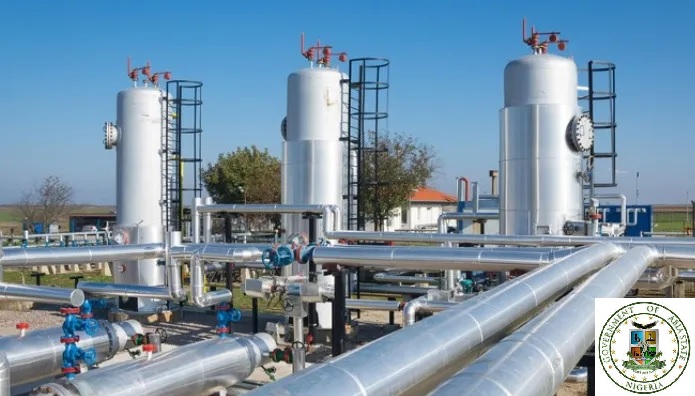
Appraisal of the Oil and Gas Industry in Abia State Nigeria
Appraisal of the Oil and Gas Industry in Abia State Nigeria – The oil and gas industry has long been a cornerstone of Nigeria’s economy, and its impact is felt across various regions of the country. In this report, we turn our attention to Abia State, a region that has played a significant role in the nation’s petroleum sector. This is an Appraisal of the Oil and Gas Industry in Abia State Nigeria.
Abia State, situated in the southeastern part of Nigeria, is home to several oil and gas reserves, making it a crucial player in the nation’s hydrocarbon exploration and production efforts. This appraisal aims to provide an in-depth analysis of the oil and gas industry in Abia State, shedding light on its historical development, current status, challenges, and potential for growth. Through this examination, we aim to offer valuable insights into the industry’s importance within the state and its broader implications for Nigeria’s energy sector.
Contents
- 1 Appraisal of the Oil and Gas Industry in Abia State Nigeria
- 1.1 Overview of Abia State:
- 1.2 Importance of the Oil and Gas Industry in Abia State:
- 1.3 Purpose and Scope of the Appraisal: Appraisal of the Oil and Gas Industry in Abia State Nigeria
- 1.4 A Historical Context: Appraisal of the Oil and Gas Industry in Abia State Nigeria
- 1.5 Evolution of the Oil and Gas Industry in Abia State:
- 1.6 Key Milestones and Developments:
- 1.7 Oil and Gas Reserves:
- 1.8 Major Oil and Gas Fields:
- 1.9 Production Statistics:
- 1.10 Economic Impact:
- 1.11 Revenue Generation for the State Government:
- 1.12 Infrastructure Development Funded by the Industry:
- 1.13 Environmental and Social Impact:
- 1.14 Social Implications and Community Relations:
- 1.15 Government and Industry Initiatives for Sustainability:
- 1.16 Regulatory Framework:
- 1.17 State-Level Regulations and Policies:
- 1.18 Challenges and Opportunities:
- 1.19 You Need Our Services: Appraisal of the Oil and Gas Industry in Abia State Nigeria
- 1.20 Read Also: Appraisal of the Oil and Gas Industry in Abia State Nigeria
- 1.21 Summing Up:
- 1.22 Share this:
- 1.23 Like this:
Appraisal of the Oil and Gas Industry in Abia State Nigeria
Overview of Abia State:
Abia State is one of the 36 states in Nigeria, located in the southeastern region of the country. It was created on August 27, 1991, and its capital city is Umuahia. Abia State is known for its rich cultural heritage, diverse ethnic groups, and growing economy. The state is predominantly inhabited by the Igbo ethnic group and covers an area of approximately 6,320 square kilometers. With a population of over 2.8 million people, Abia State is a significant contributor to Nigeria’s cultural, economic, and social diversity. Read more about this Appraisal of the Oil and Gas Industry in Abia State Nigeria.
Importance of the Oil and Gas Industry in Abia State:
The oil and gas industry plays a crucial role in Abia State’s economy. The state is part of Nigeria’s Niger Delta region, which is rich in oil and natural gas reserves. As a result, Abia State has benefited significantly from the oil and gas industry, which has had a profound impact on its socio-economic development. Some key points highlighting the importance of this industry in Abia State include:
Revenue Generation: Oil and gas activities in Abia State contribute substantially to the state’s revenue through taxes, royalties, and other income streams. This revenue is used for infrastructure development, education, healthcare, and other essential services. Appraisal of the Oil and Gas Industry in Abia State Nigeria
Employment Opportunities: The industry provides direct and indirect employment to a significant portion of the state’s workforce. From drilling operations to support services, many Abia residents find employment within the oil and gas sector.
Infrastructure Development: The revenue generated from oil and gas activities is often reinvested in building and upgrading infrastructure, such as roads, schools, and hospitals, which benefits both urban and rural areas.
Foreign Exchange Earnings: Abia State, through its oil and gas activities, contributes to Nigeria’s overall foreign exchange earnings, helping to stabilize the national economy.
Purpose and Scope of the Appraisal: Appraisal of the Oil and Gas Industry in Abia State Nigeria
The purpose of this appraisal is to comprehensively assess the impact of the oil and gas industry on Abia State. This appraisal will delve into various aspects of the industry’s presence in the state, including its economic contributions, environmental effects, social implications, and potential areas for improvement. The scope of the appraisal encompasses:
Economic Analysis: Examining the financial contributions of the oil and gas industry to Abia State’s economy, including revenue generation, job creation, and investments in infrastructure.
Environmental Impact Assessment: Evaluating the environmental consequences of oil and gas activities, such as pollution, land degradation, and measures taken for environmental preservation and restoration.
Social Implications: Investigating the social effects of the industry, including community development initiatives, health and safety concerns, and the overall well-being of the population. An Appraisal of the Oil and Gas Industry in Abia State Nigeria
Regulatory Framework: Analyzing the regulatory framework governing the oil and gas sector in Abia State and identifying areas where improvements or adjustments may be needed to ensure sustainable development.
Recommendations: Providing recommendations and policy suggestions based on the findings of the appraisal to enhance the positive impacts of the oil and gas industry while mitigating any adverse effects on the state and its people.
This appraisal aims to provide a comprehensive understanding of the role of the oil and gas industry in Abia State and guide future policies and strategies for sustainable development in the region.
A Historical Context: Appraisal of the Oil and Gas Industry in Abia State Nigeria
Evolution of the Oil and Gas Industry in Abia State:
The evolution of the oil and gas industry in Abia State is intertwined with the broader history of Nigeria’s oil industry. Here is an overview of how this industry has developed in the state:
Discovery of Oil: Nigeria’s first commercial oil discovery was made in the Oloibiri area of the Niger Delta region in 1956. This discovery marked the beginning of Nigeria’s oil boom and laid the foundation for the development of the oil and gas industry in Abia State.
Formation of Abia State: Abia State was created on August 27, 1991, from part of the former Imo State. This creation allowed Abia State to have more direct control and benefits from the oil and gas resources located within its borders. Appraisal of the Oil and Gas Industry in Abia State Nigeria
Oil Reserves: Abia State is known to have significant oil reserves, particularly in areas like Ukwa West, Ukwa East, Obingwa, and Ohafia. These reserves have attracted the attention of oil companies, leading to exploration and drilling activities.
Key Players: Major oil and gas companies, both national and international, have been involved in exploration and production activities in Abia State. These include the Nigerian National Petroleum Corporation (NNPC), Shell Petroleum Development Company (SPDC), and various indigenous operators.
Key Milestones and Developments:
Appraisal of the Oil and Gas Industry in Abia State Nigeria – The development of the oil and gas industry in Abia State has seen several significant milestones and developments:
Exploration and Drilling: The early years saw exploration activities that led to the discovery of oil reserves in the state. Drilling operations subsequently commenced, with wells being established to extract crude oil and natural gas.
Revenue Generation: Abia State began to receive substantial revenue from the oil and gas industry, contributing to its economic growth. The revenue is used to invest in infrastructure, education, healthcare, and other essential services. Appraisal of the Oil and Gas Industry in Abia State Nigeria
Environmental Challenges: The industry’s growth brought environmental challenges, including oil spills, gas flaring, and land degradation. These issues raised concerns among local communities and environmental activists, leading to efforts to mitigate the environmental impact of oil and gas operations.
Community Engagement: Oil companies operating in Abia State initiated community development projects and engagement programs to foster better relationships with local communities. These efforts aimed to address the social needs of the residents and ensure that they benefited from the industry.
Regulatory Framework: The Nigerian government established regulatory bodies like the Department of Petroleum Resources (DPR) to oversee oil and gas activities and enforce environmental and safety standards. The state government also developed policies and regulations to manage the industry within its borders. This is an Appraisal of the Oil and Gas Industry in Abia State Nigeria
Infrastructure Development: Revenue generated from the oil and gas sector contributes to the construction and improvement of road networks, schools, hospitals, and other critical infrastructure in Abia State.
Challenges and Opportunities: While the industry brought economic benefits, challenges such as pipeline vandalism, environmental degradation, and community disputes have been ongoing issues. Additionally, fluctuating global oil prices have highlighted the need for economic diversification in the state.
In summary, the oil and gas industry in Abia State has evolved significantly since its discovery, contributing both opportunities and challenges to the state’s development. It has played a pivotal role in shaping the economic and social landscape of the region, making it essential to assess its impact and ensure sustainable practices for the future. Read more about the Appraisal of the Oil and Gas Industry in Abia State Nigeria
Oil and Gas Reserves:
Overview of Oil and Gas Reserves in Abia State:
Abia State, located in the Niger Delta region of Nigeria, is known for its significant oil and natural gas reserves. These reserves are a vital component of the state’s economy and the broader Nigerian oil and gas industry. Here’s an overview:
Oil Reserves: Abia State is home to substantial oil reserves, primarily located in the southern part of the state. These reserves are part of the larger Niger Delta basin, which is one of Nigeria’s most prolific oil-producing regions.
Natural Gas Reserves: In addition to oil, Abia State also has significant natural gas reserves. Natural gas is often produced in association with crude oil and plays a crucial role in the energy sector, including power generation and industrial use. This is an Appraisal of the Oil and Gas Industry in Abia State Nigeria
Major Oil and Gas Fields:
Several oil and gas fields have been identified and developed in Abia State. Some of the major ones include:
Obuzor Field: Located in Ukwa West Local Government Area, the Obuzor Field is one of the significant oil-producing fields in Abia State.
Owaza Field: This field is situated in Ukwa East Local Government Area and is known for its oil production.
Umutu Field: Although primarily in Delta State, the Umutu Field extends into Abia State. It is a significant contributor to the region’s oil production.
Isimiri Field: This field is located in Ohafia Local Government Area and has also contributed to the state’s oil production.
Ossu Field: Another field in Ukwa West Local Government Area, the Ossu Field, has played a role in Abia State’s oil and gas industry. Get this Appraisal of the Oil and Gas Industry in Abia State Nigeria
Production Statistics:
Production statistics in the oil and gas industry are subject to fluctuations due to various factors, including global oil prices, market demand, and the operational status of wells and facilities. Some general insights into oil and gas production in Nigeria, which includes Abia State are:
Oil Production: Nigeria is one of the top oil producers in Africa and has the capacity to produce millions of barrels of crude oil per day. Abia State contributes a portion of this production, but specific production statistics for the state may vary over time.
Natural Gas Production: Nigeria also has significant natural gas reserves and is one of the leading natural gas producers in Africa. Abia State’s contribution to natural gas production is part of the broader Nigerian output. Read more about the Appraisal of the Oil and Gas Industry in Abia State Nigeria
Economic Impact:
Contribution to Abia State’s GDP:
The oil and gas industry has a significant impact on Abia State’s Gross Domestic Product (GDP). While the exact contribution can fluctuate due to oil prices, production levels, and other economic factors, the industry remains a substantial driver of the state’s economy. Here’s an overview:
Direct Contribution: The oil and gas sector directly contributes to Abia State’s GDP through revenue generated from oil production, royalties, and taxes paid by oil companies operating in the state.
Indirect Contribution: The industry also has indirect effects on other sectors of the state’s economy. It stimulates economic activities in areas such as transportation, manufacturing, construction, and services, further bolstering Abia State’s GDP. An Appraisal of the Oil and Gas Industry in Abia State Nigeria
Employment Generation
The oil and gas industry in Abia State is a significant source of employment, both directly and indirectly. Here’s a breakdown of how it generates jobs:
Direct Employment: The industry provides direct employment opportunities to thousands of Abia State residents. These jobs include positions in drilling operations, production facilities, maintenance, logistics, and administration.
Indirect Employment: Appraisal of the Oil and Gas Industry in Abia State Nigeria – Beyond direct employment, the industry creates a ripple effect throughout the economy. It generates jobs in support services such as catering, security, transportation, and supply chain management.
Local Content Initiatives: Nigerian regulations often require oil companies to prioritize hiring local talent, which further benefits the state’s workforce.
Revenue Generation for the State Government:
The oil and gas industry significantly contributes to the revenue generated by the Abia State government. Here’s how:
Taxes and Royalties: Oil companies operating in Abia State pay taxes and royalties to the state government. These include taxes on corporate income, education taxes, and royalties on the oil and gas extracted.
Lease Agreements: The state government may enter into lease agreements with oil companies for the use of land and resources, generating additional revenue.
Other Fees: The state government may also collect fees for permits, licenses, and other regulatory requirements related to oil and gas activities.
As a matter of fact, the revenue generated from the industry is essential for funding various government programs and services, including infrastructure development, education, healthcare, and poverty alleviation. This is the Appraisal of the Oil and Gas Industry in Abia State Nigeria
Infrastructure Development Funded by the Industry:
The oil and gas industry’s revenue in Abia State has been channeled into infrastructure development projects. Some key areas where the industry has funded infrastructure include:
Roads and Transportation: Revenue from the industry has been used to build and maintain road networks, facilitating transportation within the state and improving connectivity to neighboring regions.
Education: Investments have been made in building and upgrading schools, providing better educational facilities for the state’s residents.
Healthcare: Hospitals and healthcare centers have received funding, leading to improved healthcare services for the population.
Utilities: The industry has contributed to the development of utilities such as power generation and distribution, enhancing access to electricity for both urban and rural areas. An Appraisal of the Oil and Gas Industry in Abia State Nigeria
Community Development: Oil companies often engage in community development initiatives, funding projects like clean water supply, community centers, and vocational training programs.
It’s important to note that while the oil and gas industry has brought economic benefits and infrastructure development to Abia State, challenges such as environmental concerns and the need for economic diversification also persist. Balancing the positive economic impact with sustainable practices remains a priority for the state’s development.
Environmental and Social Impact:
Environmental Concerns and Challenges:
The oil and gas industry in Abia State, like in many other regions, has raised significant environmental concerns and challenges:
Oil Spills: Oil spills resulting from pipeline vandalism, equipment failure, or operational accidents have been a recurring issue in Abia State. These spills lead to soil and water contamination, harming ecosystems and agricultural lands.
Gas Flaring: Gas flaring, the burning of natural gas associated with oil production, contributes to air pollution, releases greenhouse gases, and poses health risks to nearby communities.
Land Degradation: The industry’s activities can lead to land degradation, disrupting agricultural practices and affecting the livelihoods of local communities. Get this Appraisal of the Oil and Gas Industry in Abia State Nigeria
Water Pollution: The discharge of untreated wastewater and other pollutants into water bodies can contaminate local water sources, posing risks to both aquatic life and human health.
Biodiversity Impact: Deforestation and habitat disruption due to infrastructure development can harm local wildlife and biodiversity.
Social Implications and Community Relations:
The oil and gas industry’s presence in Abia State has had social implications, both positive and negative, and has influenced community relations:
Employment: The industry has provided employment opportunities for local residents, improving livelihoods and economic well-being in some areas.
Community Development: Oil companies have initiated community development projects, including building schools, and health centers, and providing clean water supply to improve living conditions.
Conflict and Disputes: Disputes over land use, compensation, and environmental damage have arisen between oil companies and local communities, leading to conflicts and tensions. Ask for a supportive Appraisal of the Oil and Gas Industry in Abia State Nigeria
Health and Safety: Some communities have raised concerns about health and safety issues related to oil and gas operations, including air and water quality, and the impact of gas flaring on respiratory health.
Cultural Impact: The influx of workers and the transformation of local economies have had cultural impacts on some communities, altering traditional ways of life.
Government and Industry Initiatives for Sustainability:
Efforts have been made by both the government and the oil and gas industry to address environmental and social challenges and promote sustainability:
Environmental Regulations: The Nigerian government, through agencies like the Department of Petroleum Resources (DPR), has established regulations to enforce environmental standards and reduce pollution. Companies are required to conduct environmental impact assessments (EIAs) and implement mitigation measures. An Appraisal of the Oil and Gas Industry in Abia State Nigeria
Gas Flare Reduction: There have been initiatives to reduce gas flaring through the Nigerian Gas Flare Commercialization Program, which aims to capture and utilize associated gas for economic and environmental benefits.
Community Engagement: Oil companies have engaged in community development programs, including infrastructure projects, scholarships, and vocational training, to improve relations with local communities.
Corporate Social Responsibility (CSR): Many oil companies operating in Abia State have CSR programs that focus on education, healthcare, and community development to give back to the communities where they operate.
Technology and Best Practices: Industry advancements in technology and best practices, such as using modern drilling and production techniques, can help minimize environmental impact.
Appraisal of the Oil and Gas Industry in Abia State Nigeria – Sustainability remains a critical focus for both the government and the oil and gas industry in Abia State. Balancing economic development with environmental and social responsibility is an ongoing challenge, and stakeholders continue to work towards finding solutions that benefit all parties involved while safeguarding the environment and local communities.
Regulatory Framework:
Overview of Oil and Gas Regulations in Nigeria:
The oil and gas industry in Nigeria is subject to a comprehensive regulatory framework that spans both federal and state levels. Here is an overview of the key aspects of this regulatory framework:
Federal Regulation: The primary federal regulatory body overseeing the oil and gas sector in Nigeria is the Department of Petroleum Resources (DPR). DPR is responsible for the issuance of licenses, permits, and approvals for exploration, production, and downstream activities. It also enforces environmental and safety standards, conducts audits, and collects royalties and taxes. This is an Appraisal of the Oil and Gas Industry in Abia State Nigeria
Oil and Gas Act: The Nigerian Oil and Gas Industry Content Development Act (2010) and the Petroleum Act (1969) provide the legal foundation for the industry’s operations. These laws outline the rights, responsibilities, and obligations of industry stakeholders, including the government and oil companies.
Local Content: The Nigerian Content Development and Monitoring Board (NCDMB) promotes local participation and capacity development in the oil and gas sector. It ensures that Nigerian companies and workers benefit from industry activities.
Environmental Regulations: Environmental regulations are governed by various laws and regulations, including the National Environmental Standards and Regulations Enforcement Agency (NESREA) Act and the Environmental Impact Assessment (EIA) Act. These laws require companies to conduct EIAs and implement environmental management plans. Please, read more about the Appraisal of the Oil and Gas Industry in Abia State Nigeria
State-Level Regulations and Policies:
At the state level, Abia State has also established specific regulations and policies to govern oil and gas activities within its borders:
Lease Agreements: The state government may enter into lease agreements with oil companies for the use of land and resources within the state. These agreements outline the terms and conditions for exploration and production activities.
Revenue Collection: State governments collect revenue from the oil and gas sector through taxes, levies, and royalties. These funds are essential for financing state-level projects and services. Check out the Appraisal of the Oil and Gas Industry in Abia State Nigeria.
Community Engagement: Abia State has policies and guidelines for community engagement and development. Oil companies are often required to engage with local communities, address their concerns, and implement community development projects as part of their operations.
Challenges and Areas for Improvement:
Despite the regulatory framework in place, the Nigerian oil and gas industry, including Abia State, faces several challenges, and there are areas for improvement:
Regulatory Compliance: Ensuring full compliance with environmental and safety regulations by oil companies remains a challenge. Enforcement mechanisms need to be strengthened to prevent violations and hold non-compliant companies accountable. Read more about the Appraisal of the Oil and Gas Industry in Abia State Nigeria.
Transparency and Accountability: There have been concerns about transparency and accountability in revenue collection and distribution. Improvements in auditing and reporting mechanisms can help address these issues.
Environmental Protection: The industry must continue to work on minimizing its environmental footprint, including reducing gas flaring, preventing oil spills, and implementing effective environmental restoration and remediation practices.
Community Relations: Building and maintaining positive relations with local communities is crucial. Ongoing efforts are needed to address community concerns, provide fair compensation for land use, and ensure that communities benefit from industry activities.
Economic Diversification: Abia State, like other oil-dependent regions, should focus on diversifying its economy to reduce reliance on oil revenue. This includes developing other sectors such as agriculture, manufacturing, and tourism.
Regulatory Efficiency: Streamlining and improving regulatory processes can facilitate investment in the sector while ensuring that all environmental and safety standards are met. An Appraisal of the Oil and Gas Industry in Abia State Nigeria
Capacity Building: Enhancing the capacity of regulatory agencies to effectively monitor and enforce regulations is essential for the industry’s sustainable development.
Appraisal of the Oil and Gas Industry in Abia State Nigeria – In general, the regulatory framework for the oil and gas industry in Abia State and Nigeria as a whole is complex and multi-layered. Addressing the challenges and improving the regulatory environment is vital to ensure the industry’s sustainability, protect the environment, and benefit local communities and the broader Nigerian economy.

Challenges and Opportunities:
Challenges Faced by the Oil and Gas Industry in Abia State
The oil and gas industry in Abia State faces several challenges, including:
Environmental Concerns: Oil spills, gas flaring, and land degradation have significant environmental impacts, leading to ecological damage and community discontent.
Security Issues: Pipeline vandalism, oil theft, and security threats in the Niger Delta region have disrupted operations and led to revenue losses. This is the Appraisal of the Oil and Gas Industry in Abia State Nigeria
Fluctuating Oil Prices: The industry is vulnerable to global oil price fluctuations, which can impact revenue and investment decisions.
Community Conflicts: Disputes between oil companies and local communities over land use, compensation, and environmental damage can disrupt operations.
Regulatory Challenges: Inconsistent enforcement of regulations and bureaucratic inefficiencies can hinder investment and compliance.
Opportunities for Growth and Diversification
Despite these challenges, there are opportunities for the oil and gas industry in Abia State to grow and diversify:
Natural Gas Utilization: Abia State can focus on capturing and utilizing associated natural gas, not only reducing gas flaring but also providing a valuable energy source for power generation and industrial use.
Renewable Energy: Diversifying into renewable energy sources such as solar and wind power can provide alternative energy options and reduce environmental impact. Ask for supportive services for this Appraisal of the Oil and Gas Industry in Abia State Nigeria,
Agriculture: The state can leverage its fertile land for agriculture, boosting food production and agribusiness. Agriculture diversification can create jobs and enhance food security.
Technology Adoption: Embracing modern drilling and production technologies can improve operational efficiency and reduce environmental impact.
Local Content Development: Encouraging the growth of local businesses and industries that support the oil and gas sector can enhance economic diversification and create value within the state.
Strategies for Mitigating Challenges and Capitalizing on Opportunities
To address challenges and capitalize on opportunities, Abia State and the oil and gas industry can consider the following strategies:
Environmental Management: Implement strict environmental management practices, invest in clean technology, and conduct regular environmental impact assessments to minimize ecological damage.
Security Measures: Collaborate with security agencies to enhance pipeline security, reduce oil theft, and protect infrastructure. This is the Appraisal of the Oil and Gas Industry in Abia State Nigeria
Economic Diversification: Develop and implement policies and initiatives to diversify the state’s economy, reducing its reliance on oil revenue.
Community Engagement: Establish transparent and accountable community engagement processes, ensuring that local communities benefit from industry activities.
Regulatory Reform: Streamline and improve regulatory processes, enhance enforcement, and reduce bureaucratic obstacles to investment.
Infrastructure Development: Invest in critical infrastructure, such as roads, electricity, and healthcare, to improve the quality of life for residents and support economic growth.
Skills Development: Invest in education and skills development programs to create a capable local workforce, capable of participating in various industries, including oil and gas.
Renewable Energy Integration: Explore opportunities for renewable energy projects and gradually transition towards a more sustainable energy mix. That is about the Appraisal of the Oil and Gas Industry in Abia State Nigeria
Local Content Promotion: Encourage local content development by providing incentives and support to local businesses and industries.
Stakeholder Collaboration: Foster collaboration between government, oil companies, local communities, and civil society organizations to address challenges and seize opportunities collaboratively.
In conclusion, the oil and gas industry in Abia State faces various challenges, but it also offers opportunities for growth and diversification. Effective strategies for mitigating challenges and capitalizing on opportunities require a holistic and collaborative approach involving all stakeholders. Balancing economic development with environmental sustainability and social well-being remains a priority for the state’s long term.
You Need Our Services: Appraisal of the Oil and Gas Industry in Abia State Nigeria
Cessummit Integrated Services is your one-stop solution for comprehensive business development and support services tailored to meet the unique needs of businesses of all sizes and industries. With a commitment to excellence and a proven track record of success, we are here to empower your business to thrive in today’s competitive landscape.
Our Range of Services:
- Business Consulting: Our team of experienced consultants is ready to analyze your business operations, identify opportunities for growth, and provide strategic guidance to help you achieve your goals.
- Market Research: Stay ahead of the competition with our in-depth market research services. We gather valuable insights to assist you in making informed decisions and crafting effective marketing strategies.
- Financial Management: We offer financial planning, budgeting, and analysis services to ensure your business maintains a healthy bottom line and maximizes profitability.
- We specialize in crafting comprehensive business plans and conducting feasibility analyses to empower startups with strong foundations and assist scaling-ups in making informed strategic decisions.
- Marketing and Branding: Let us enhance your brand’s visibility and reach. We provide comprehensive marketing and branding solutions, including digital marketing, social media management, and content creation.
- Technology Solutions: Stay technologically competitive with our IT services, including software development, website design, and cybersecurity solutions.
- Human Resources Support: We can help you build a skilled and motivated workforce through recruitment, training, and HR consulting services.
- Legal and Compliance: Ensure your business remains compliant with all relevant laws and regulations. Our legal experts can guide you through contracts, licensing, and compliance issues.
- Operational Efficiency: Streamline your business processes and improve efficiency through our operational optimization services.
- Customer Support: Deliver exceptional customer experiences with our customer support and satisfaction enhancement strategies.
- Customized Solutions: We understand that every business is unique. That’s why we offer tailor-made solutions to address your specific challenges and goals.
Contact us today to take your business to the next level. You can reach Cessummit Integrated Services at +234 9053130518 or email us at [email protected]. Our dedicated team is eager to discuss how we can assist you in achieving your business objectives and ensuring your long-term success. Let’s embark on this journey together.
Read Also: Appraisal of the Oil and Gas Industry in Abia State Nigeria
- Technology and Innovation and Business Startups
- How to Apply Business Profitability Analysis
- Time Management challenge to business start-ups
- Leadership Challenges Restrict Business Start-up Growth
- Business Opportunities in 2023
- Important of entrepreneurship as a global concept
- Business Planing Process for Scale-ups
- 20 types of profitable entrepreneurship in Nigeria
- Oil and Gas Plans
Summing Up:
Summing up, the appraisal of the oil and gas industry in Abia State, Nigeria, underscores the significant role this region plays in the nation’s energy sector. We have delved into the historical context, explored the current status of oil and gas activities, and identified the challenges and opportunities that lie ahead.
Abia State’s oil and gas sector has the potential to contribute even more to the state’s economic growth and Nigeria’s energy security. However, to realize this potential, it is imperative that stakeholders work collaboratively to address the challenges of environmental sustainability, community development, and regulatory frameworks.
With a concerted effort towards responsible and sustainable practices, Abia State can continue to be a vital contributor to Nigeria’s oil and gas industry, ensuring both local prosperity and national energy stability for years to come. Thanks for reading through the Appraisal of the Oil and Gas Industry in Abia State Nigeria. If you found this article helpful, please consider bookmarking, liking, following, or sharing it.






